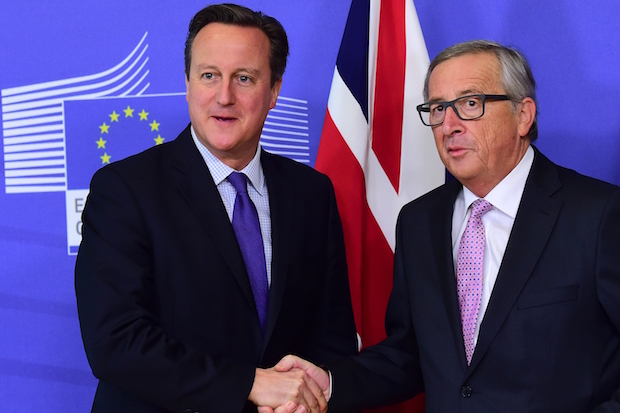David Cameron is off to Iceland today to give a speech on Britain’s European Union membership and it’s a clear signal that he will eventually campaign for Britain to remain in. Until now, the Prime Minister has avoided talking about why Britain should ‘Remain’ or ‘Leave’ the EU — instead focusing on the importance of the renegotiations.
His argument will be based on Iceland and Norway, who are members of the European Economic Area — which allows them to trade inside the single market. According comments from No.10 sources, Cameron will warn this means they have less control over decision making in Brussels and this kind of looser relationship would not be right for Britain. One source told the BBC:
‘Unlike the UK, Norway has no veto in the European Council, no votes in the EU’s council of ministers, no MEPs or votes in the European Parliament, and no European commissioner to help.’
Another Downing Street source tells the Daily Telegraph ‘it is not necessarily a land of milk and honey’ and ‘people need to understand that there are significant downsides’ to a Brexit. Cameron is also likely to warn that billions of pounds of trade deals would need to be renegotiated if Britain voted to Leave.
However, the Out campaign is insisting they are not proposing a Norway-style relationship. Rob Oxley from the Vote Leave campaign says:
‘No.10 are doing this because they are in a panic. This speech shows they’ve given up on all pretense of carrying out a proper negotiation and they will be campaign to remain in at all costs — so they need to make the case now because the BSE [Britain Stronger In Europe] campaign are in such a muddle. It is pretty disappointing in Conservative supporters who have been backing the Prime Minister.
‘This speech is setting up a straw man – we haven’t mentioned a Norway option. When we vote to Leave, we will have a we will have a British option based on free trade and friendly cooperation.’
Fear often wins referendum campaigns — No to AV and Scottish independence are two recent examples — and both sides are trying to show the other side poses more danger. No.10 is talking up the fear about trade and decisions made in Brussels without our control, while Vote Leave is focusing on the fear of remaining in and handing over ever more power and money to Brussels either year. Whichever side manages to win this argument will likely win the referendum.






Comments